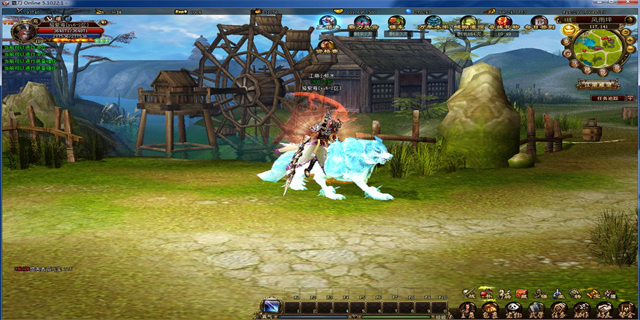Warcraft and Call of Duty: Legendary Game Franchises
Introduction
Two iconic game franchises have dominated the gaming industry for years: World of Warcraft (WoW) and Call of Duty (CoD). Both games have captured the hearts of millions of players around the world, offering unique experiences in two distinct genres. In this article, we will explore the incredible success and impact of these two legendary game series.

World of Warcraft: The Evolution of the MMO Genre
World of Warcraft, developed by Blizzard Entertainment, made its debut in 2004 as the fourth installment in the Warcraft fantasy universe. It instantly became a game-changer, revolutionizing the massively multiplayer online (MMO) genre. WoW introduced a vast and immersive world, filled with rich lore, challenging quests, and endless possibilities for interaction with other players.
The success of WoW can be attributed to its exceptional storytelling and captivating gameplay. Players could choose from a variety of races and classes, each with its unique abilities and characteristics. They embarked on epic quests, battled fearsome monsters, and forged alliances in a persistent online world. The game's constant updates and expansions kept players engaged for years, solidifying WoW as a cultural phenomenon.

WoW's impact on the gaming industry cannot be overstated. It inspired numerous MMOs, setting a benchmark for immersive storytelling, social interaction, and endgame content. Through regular updates and expansions, Blizzard continues to keep the game fresh and relevant, maintaining its dedicated player base and attracting new adventurers.
Call of Duty: Redefining the First-Person Shooter Genre
Call of Duty, developed by Infinity Ward, Treyarch, and Sledgehammer Games, first launched in 2003. It quickly gained popularity for its intense and realistic depiction of military combat. The franchise initially focused on World War II settings, providing players with an immersive experience of historical battles. However, it was with Call of Duty 4: Modern Warfare that the series truly skyrocketed.
Modern Warfare introduced a contemporary setting and a compelling single-player campaign that pushed the boundaries of storytelling in first-person shooters. It also revolutionized online multiplayer, introducing a leveling system, customizable loadouts, and competitive gameplay. The addictive nature of the game, coupled with its fast-paced action and cinematic graphics, propelled Call of Duty to the forefront of the first-person shooter genre.
Since then, the Call of Duty franchise has become a yearly phenomenon, captivating players with its gritty campaigns and adrenaline-filled multiplayer modes. Each installment brings new features, maps, and weapons, fueling the competitive spirit of the game. The success of Call of Duty paved the way for other popular multiplayer shooters and established it as a cultural touchstone in the gaming landscape.
The Enduring Legacy
Both World of Warcraft and Call of Duty have left an indelible mark on the gaming world. They continue to dominate their respective genres, attracting millions of players and generating billions in revenue. These franchises have become more than just games; they are cultural phenomena that inspire fan communities, eSports competitions, and even films and TV adaptations.
World of Warcraft and Call of Duty have also demonstrated the power of continuous updates and expansions. By providing fresh content, balancing gameplay, and listening to player feedback, both Blizzard Entertainment and the Call of Duty developers have managed to keep their games relevant and engaging for over a decade.
In conclusion, World of Warcraft and Call of Duty have redefined their respective genres and reshaped the gaming industry. Their enduring success is a testament to the incredible storytelling, immersive gameplay, and strong community engagement. As these legendary franchises continue to evolve and innovate, they are poised to captivate new generations of players and leave a lasting legacy.














